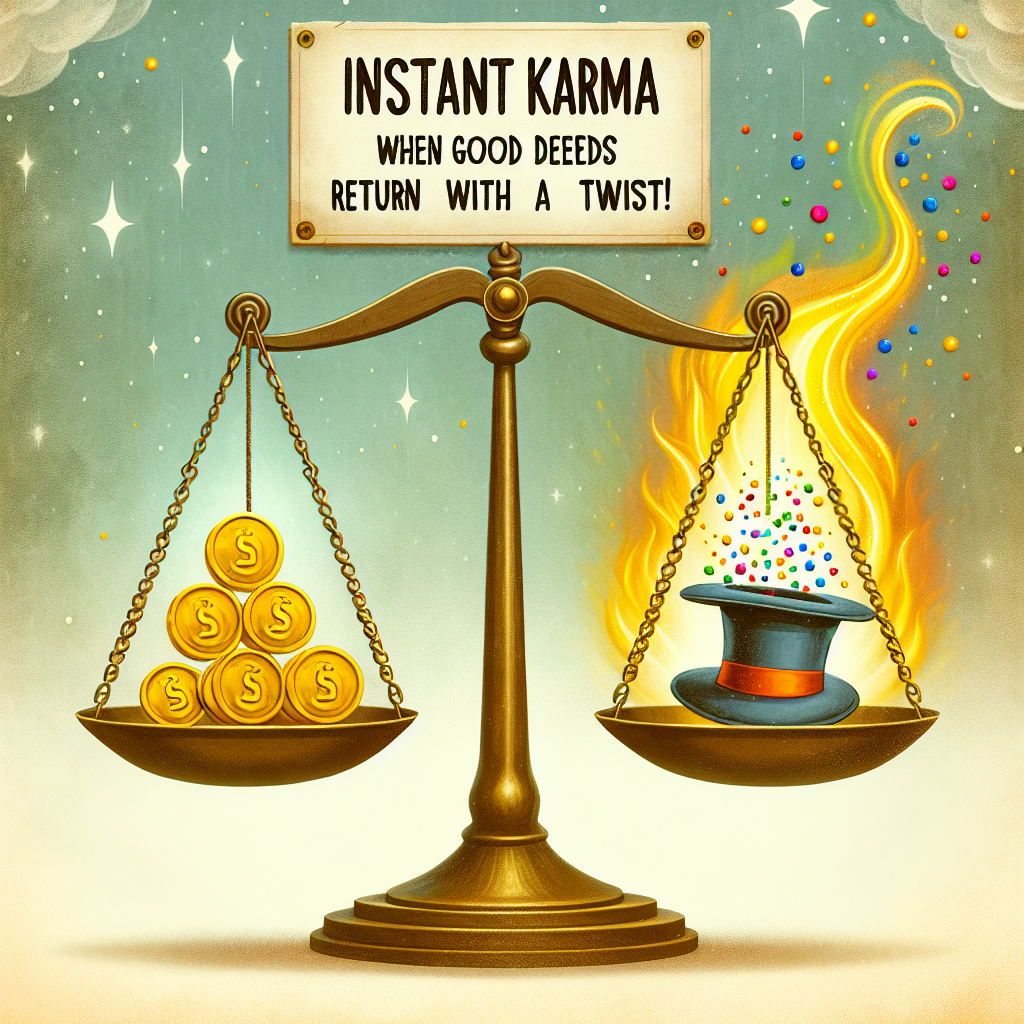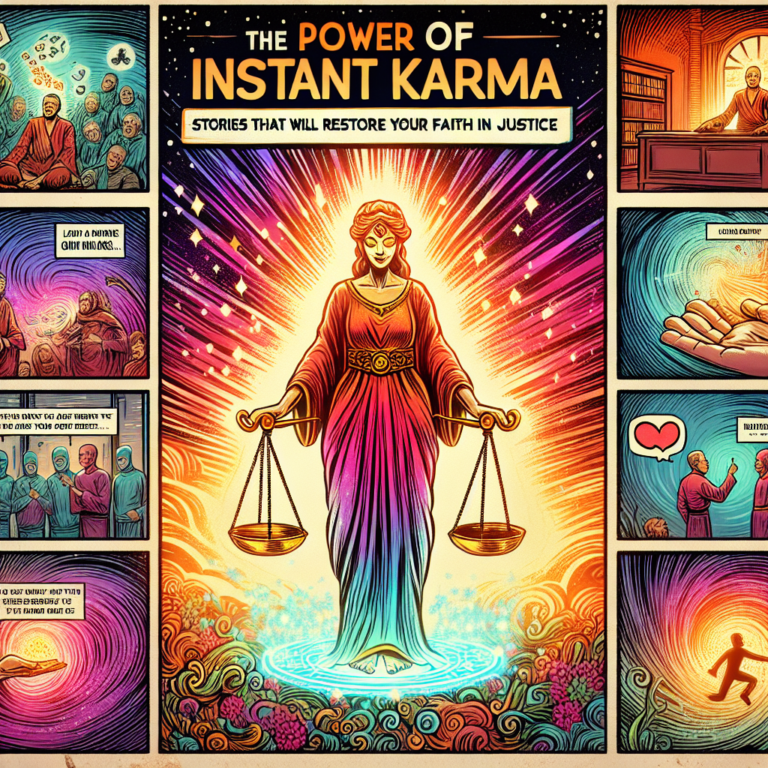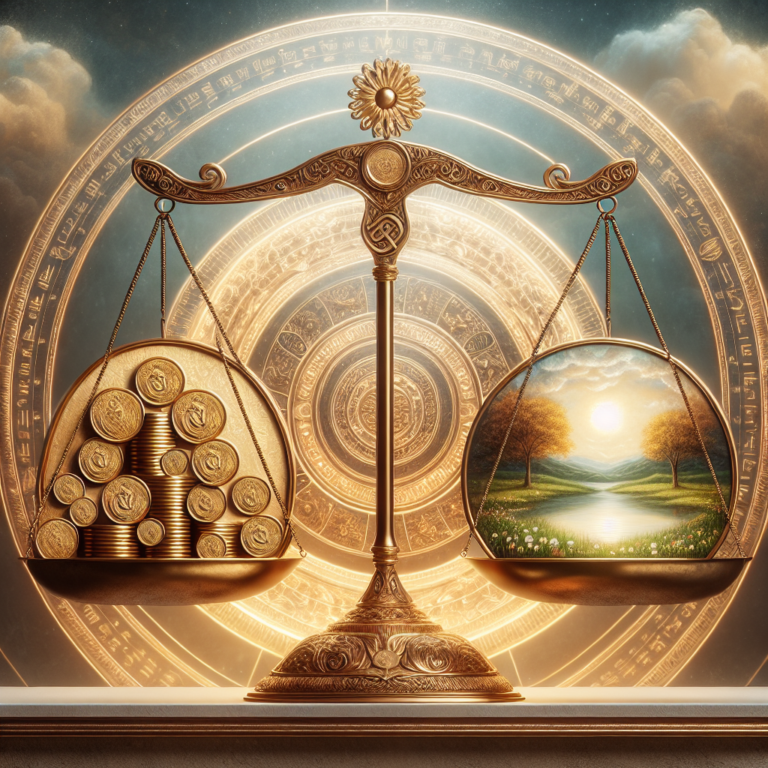We’ve all heard the saying, “What goes around comes around.” This age-old adage speaks to the principle of karma, the idea that our actions—whether good or bad—will eventually return to us in some form. But what if karma isn’t just a slow-moving concept? What if, in specific circumstances, good deeds can take on an instant, unexpected twist? That’s where the concept of “Instant Karma” enters the picture, showcasing the often amusing, perplexing, and sometimes even poetic repercussions of our actions.
The Concept of Instant Karma
At its core, instant karma implies that there is an immediate response to an action, rewarding or punishing the actor in real-time. It’s as though the universe has a direct connection to our deeds and decisions, enforcing a cosmic balance without delay. Imagine this scenario: You witness a stranger drop their wallet. You could pocket the cash, but instead, you return it to them. Moments later, you bump into a friend who gifts you free tickets to a concert you’re dying to attend. Is this pure coincidence, or is it a delightful result of your good deed?
This concept of karma can be light-hearted, with many stories showcasing the humor in the situation. But whether we view it as superstition or not, there’s something captivating about the idea that our good—or bad—actions can evoke instant consequences.
Anecdotal Evidence: Stories of Instant Karma
The Thief and the Bike
Consider a tale that went viral online: A thief swiped a pedestrian’s bicycle, gleefully riding away until, moments later, he hit a pothole and crashed spectacularly. The karma was almost theatrical—nature played referee, rewarding the honest cyclist and punishing the thief with immediate consequences.
The Kind Stranger
In another example, a woman helped a lost child find their way home. While returning to her car, she found an envelope filled with cash tucked under her windshield wiper, likely left behind by a grateful parent. The synchronicity of the events points toward a universal system of reward that promotes good deeds.
The Rude Driver
On a different note, one might recall the impatient driver who honked loudly at someone trying to merge. In a twist of fate, that same driver found themselves stuck in traffic just a block away, their ego deflated as they watched others zip ahead.
These anecdotes resonate with people because they are relatable, affirming the notion that good ultimately triumphs while bad experiences can catch up with those who act immorally.
The Psychological Aspect of Instant Karma
While these stories are often told in a humorous light, the psychological implications of karma are worth considering. Instant karma may instantiate a sense of justice—a balancing act that can soothe our inherent need for fairness. Psychologists argue that humans possess an innate belief in a just world, which means we often hope for and expect a degree of fairness in the universe. When we witness or experience instant karma, it reassures us that order exists and that positive behaviors yield rewards.
Additionally, the reinforcement of good behavior through instant karma may encourage others to engage in prosocial actions. As people share stories of good deeds leading to good consequences, it helps cultivate a culture of kindness, with the understanding that what we do can indeed return back to us, often layered with surprising twists.
The Dilemma of Bad Karma
Of course, karma isn’t strictly about good deeds. The dark side of instant karma has become a subject of scrutiny. For every rewarding story, there are those where dubious actions bear immediate negative consequences. The pushy businessperson who steals a client from a colleague only to find their own contracts pulled the next day experiences what could be viewed as karmic justice.
It’s essential to recognize that while instant karma can enhance our understanding of justice, not everything happens as a direct result of individual actions. Life is full of complexities, and while the universe may deliver punches of poetic justice, it doesn’t always happen in an equal measure.
The Ripple Effect
Moreover, instant karma isn’t restricted to individual deeds; it can also extend to communities and societies. Consider a neighborhood that decides to participate in a community cleanup effort. Their good actions draw others in, creating a ripple effect. Suddenly, more people are involved, and the community transforms in uplifting ways. Here, we can see the positive twist of collective good deeds returning quickly to the community.
Conversely, the same notion applies to neglect or wrongdoing. A society that chooses to ignore corrupt politicians could find themselves facing greater societal issues down the line, showcasing that neglect can have compounding effects.
Conclusion
Instant karma encapsulates the beauty and whimsy found in everyday life. It serves as a reminder that our actions have weight, sometimes leading to delightful consequences. By acknowledging both good and bad karma, we grow in our understanding of interconnectedness—the way our deeds shape those around us and how they can map out our life’s journey.
Whether you view instant karma as a cosmic truth or a mere coincidence, it certainly adds an intriguing layer to our experiences. So, the next time you find yourself at a crossroads, contemplating a kind act or a less favorable choice, remember the stories: you never know how quickly the universe might respond.
FAQs
Q1: What is the origin of the term “karma”?
A1: The term “karma” originates from the Sanskrit word “karman,” which means “action” or “deed.” It appears in several Eastern religions, including Hinduism and Buddhism, where it represents the spiritual principle of cause and effect.
Q2: Is instant karma a real phenomenon?
A2: While there are numerous anecdotes and stories about instant karma, scientific evidence is limited. Many people view these experiences as coincidences or subjective interpretations of events.
Q3: How can I cultivate more positive karma in my life?
A3: Engage in acts of kindness, show gratitude, and be mindful of your actions toward others. Simple gestures, such as helping someone in need or practicing patience, can contribute to a repository of positive karma.
Q4: Can bad karma have lasting effects?
A4: Many believe that negative actions can lead to consequences that accumulate over time. However, the effects of karma may not always be immediately visible, and the interpretation of karma can vary significantly among individuals and cultures.
Q5: What should I do if I believe I am experiencing bad karma?
A5: Reflect on your actions and consider making amends. Focusing on positive change, engaging in good deeds, and learning from past mistakes can help shift the karma in your favor.
It seems like your message is incomplete. Could you please provide more details about what you’re looking for? Whether it’s writing, brainstorming ideas, or something else, I’m here to help!, #Instant #Karma #Good #Deeds #Return #Twist, #Instant #Karma #Good #Deeds #Return #Twist, 1734650740, instant-karma-when-good-deeds-return-with-a-twist





